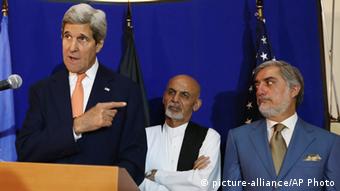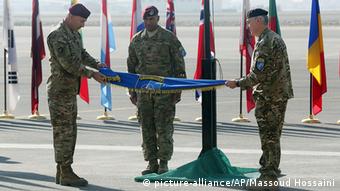Then came Peshawar massacre of army public school’s children and some female teachers and that tragic terrorist attack shook entire world, let alone Pakistan. 150 school children and female teachers were martyred and that angered a vast majority of the silent majority of Pakistan nation. Feeling the heart and amid mounting pressure, civilian leadership and military junta sat together and that brought National Action Plan and under NAP, Provincial Action Plans (PAPs).
Not to forget the fact that from Pakistan’s international geographical borders with Iran and Afghanistan to China and India, all terrorist attacks were perpetrated by Deobandis affiliated with one or another militant outfit that was banned by the State of Pakistan for their terrorist attacks civilians and security officials alike.
But, that has not scared Deobandis because of full support from remnants of General Zia, their godfather who usurped power and sacked democratically elected populist government of Pakistan People’s Party led by Zulfikar Ali Bhutto in 1977. Zia got Bhutto hanged in 1979 and began laying the foundation of turning Pakistan into a Deobandi-Wahhabi State.
Saudi-CIA alliance patronized them and used Deobandis of Pakistan as their proxy to hijack legitimate national resistance of Afghanis to the foreign occupier (then U.S.S.R.). U.S. journalist and author John Cooley narrated all important developments of that era in his book Unholy Wars. Even role of U.S. legislator Charlie Wilson was so prominent that movies and books came to scene with focus on that role.
U.S. diplomat Denis Kux too gave graphic details of the events of marriage of convenience between Saudi Wahhabis/allied-Deobandis and U.S.-led West, a pro-Israel bloc. Deobandis and Wahhabis began marginalizing Shia Muslims and Sunni Bralevis under a well-designed long-term machination. Afghanistan never stabilized since that proxy of Wahhabis-allied Deobandis of pro-Israel Western bloc that was led by United States as per the West’s global counter-communism strategy and that suited the U.S.-led pro-Zionists West altogether.
Surprisingly, neither Pakistan nor Afghanistan prospered in the post-U.S.S.R. world that is also known as “unipolar” world led by U.S. But, Saudis-allied Deobandis emerged as “fortunate sons” of the marriage of convenience between Saudi monarchy and the U.S. Pakistan was sold Deobandi-Wahhabi narrative of strategic depth and under that they pushed this great nation to strategic death.
Deobandis continued proxy role to advance the illegitimate interests of Saudi-U.S. alliance and another fortunate son Taliban was born out of that another marriage of convenience between them. Then, came 9/11 which French research scholar declared The Big Lie and now Zacarias Moussaoui of al-Qaida confirmed Saudi funding for their terrorist activities hence it is quite clear that it was a fixed match in which proxies of U.S.-Saudi alliance and their actual foreign masters would portray them as staunch enemies of each other.
Zacarias Moussaoui confessed his links with Saudi royal family’s princes who held or still hold key positions in Saudi government such as King Salman, Prince Bandar bin Sultan, Prince Turki al Faisal. Nexus of Wahhabis and Wahhabis-allied Deobandi outfits are known in Af-Pak region. Deobandis militant outfit Sipah-e-Sahaba aka ASWJ introduced takfiri terrorism hijacking pro-unity Deobandis against Shia Muslims and Sunni Bralevis and also against non-Muslim minorities such as Hindus and Christians.
They provided logistic support to Taliban in Afghanistan and brought a new son they gave birth in Afghanistan and named that Lashkar-e-Jhangvi named after founder of proscribed ASWJ’s original outfit Sipah-e-Sahaba. Security establishment mainly its intelligence agencies alerted the world that these outfits are allies, facilitators and abettors of al-Qaida that was created in pre-Taliban Afghanistan by the U.S.-led West together with the Saudi monarchy. Former British Foreign Minister Robin Cook disclosed that role in the House and also wrote an article published in Guardian.
Renowned Pakistani diplomats Riaz Khan and S Iftikhar Murshed also mentioned that role to some extent in their on Afghanistan-Pakistan and on Taliban Years respectively.
Even Pakistani Foreign Minister Sartaj Aziz hinted in his book at the main organ behind Afghan Policy of Pakistan that caused damage to Pakistan. He also admitted that Deobandi seminaries were established under that U.S.-Saudi Afghan policy.
Coming back to the present critical scenario, one should not forget the fact that Saudi monarchy had paid Nawaz Government $ 1.5 billion and now invited him at Riyadh where un-elected Saudi ruler, a hereditary monarch, dictated the democratically elected Prime Minister Nawaz Sharif of Pakistan what Saudis want to do.
Soon after Saudi dictation, focus of the National Action Plan was shifted from Deobandis to MQM, a Karachi-based secular party led by a Sunni Bralevi politician Altaf Hussain who welcomed accountability as per law. But, Deobandis threatened the State of Pakistan that they would react to due action against the pro-takfiris and pro-terrorists seminaries. They had opposed the National Action Plan and not voted for Constitutional amendment that was needed to approve the decisions of post-massacre meeting of civilian political leadership and military leadership.
Nobody oppose the targeted military action against any criminal, thug or militant be he or she is ethnic nationalists, but these sorts of terrorism is limited to Karachi or Hyderabad as far as MQM is concerned, Jeay Sindh is also limited and Baloch ethnic nationalists were also involved in Balochistan alone. Instead of taking due action against the takfiri Deobandis who infiltrated these ethnic or sub-nationalist organisations and used them to kill innocent people, action has been diverted to those criminals who have not bombed holy shrines of Islamic saints, nor they bombed Wagah or Taftan border nor they bombed Shia mosques and Imam Bargahs nor they bombed Christian churches nor they bombed GHQ, PAF Base Kamra, PNS Mehran and PNS Kamra nor they bombed ISI officials and offices nor they bombed SSG commandoes at Tarbela. Powers that be need to put the NAP-designed operation on right track and in right direction.
http://www.shiitenews.org/index.php/shiitenews/pakistan/diverting-focus-of-national-action-plan-from-deobandis-to-ethnic-terrorism







